Strengthen Your Immunity with Immune-Boosting Foods
Sep 18,2020
Strengthen Your Immunity with Immune-Boosting Foods
Sep 18,2020


The importance of a healthy immune system is a big topic these days. Having a strong, healthy immune system helps create resilience against changes in physical condition. A weak immune system, on the other hand, leaves you susceptible to poor health.
Among the things you can do to develop a healthier immune system are getting enough sleep, doing moderate exercise, and not letting stress build up. And what should you pay attention to in your daily diet?
To learn more about foods that promote healthy immunity, we talked to food coordinator and registered dietitian Shimizu Kanako, who is also a qualified international traditional Chinese medicine chef.
Immunity is our body’s defense mechanism. It prevents bacteria, viruses, molds, and other pathogens present in the air from invading the body.
What, then, do you think our immune system is specifically made up of?
It is made up of white blood cells, the autonomic nervous system, intestinal flora, and individual cells.
To ensure that your immune system properly does its job, you must, among other things:
・keep your gut in good working order
・maintain your body’s ability to eliminate active oxygen
None of these elements is effective on its own. They keep us healthy by all working properly in tandem. That’s why it’s important to be mindful of eating a balanced diet, so that adequate nutrition is delivered to all parts of your body.
The immune system fully develops at a young age and generally declines after age twenty.
What’s more, certain eating habits can further undermine the health of your immune system. Let’s take a look at several.
A lower body temperature adversely affects the health of the immune system. When your body temperature is low, the cells and enzymes that support immunity cease to function adequately. It also makes it easier for harmful bacteria to proliferate in the gut.
Be wary, therefore, of drinking too many cold drinks and eating too many vegetables and fruits with high water content. You should especially avoid cooling foods and drinks immediately after getting up in the morning, when your body temperature is lowest.
*A form of oxygen breathed into the body that, at excessive levels, causes damage to cells, resulting in aging, chronic diseases, and a weakened immune system.
Vegetables, mushrooms, and seaweed contain many nutrients that promote healthy immunity. These include vitamins, fiber, and phytochemicals such as polyphenols.
Mushrooms and seaweed also contain large amounts of fiber. Besides keeping the gut in good working order, fiber helps eliminate active oxygen from the body, so be sure to eat plenty of both.
Protein is an essential building block of the body’s cells and immune compounds. When you don’t get enough protein, your body can’t produce enough cells and immune compounds, impairing the healthy functioning of the entire immune system.
Eating a balanced diet is essential to promoting healthy immunity. Next, let’s examine specifically what foods you should eat.
*Phytochemicals are chemical compounds synthesized by plants to protect themselves against ultraviolet rays and insects. In humans they eliminate excess active oxygen and are believed to promote healthy immunity.

Getting enough protein, which forms the building blocks of the body’s cells and immune compounds, keeps your immune system functioning properly. Be sure to consume high-quality protein by eating a well-balanced combination of such foods as meat, fish, eggs, soybean products, and dairy products.
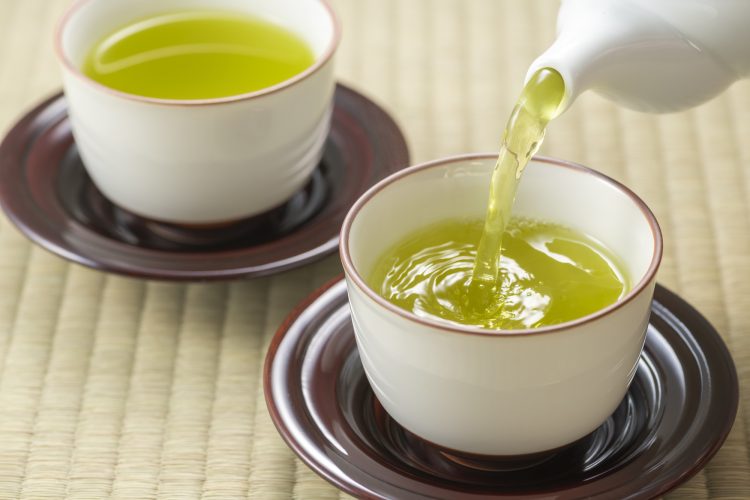
Green tea, cocoa, red wine, soba, vegetables, and fruit all contain large amounts of the antioxidant polyphenol. Polyphenols boost the activity of white blood cells and eliminate active oxygen. So not only do they promote healthy immunity; they also combat aging by keeping you healthy.
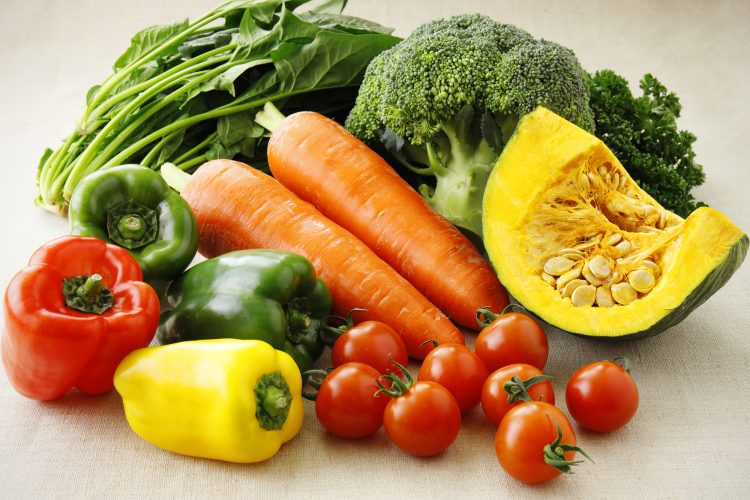
Brightly colored vegetables are rich in vitamins A, C, and E. Vitamin A in particular strengthens macrophages (lymphocytes and phagocytes), which kill bacteria and viruses. It thus enhances the healthy functioning of your immune system.
Brightly colored vegetables also contain large amounts of phytochemicals. Different vegetables supply different nutrients depending on their pigmentation. That’s why you should make a point of eating as many different colors of vegetables as possible.
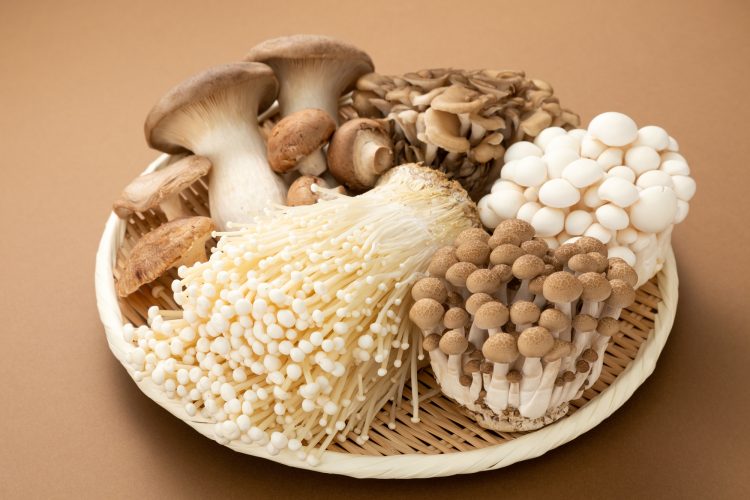
In addition to fiber, mushrooms contain a compound specific to mushrooms called beta-glucan. Beta-glucan promotes healthy immunity by stimulating macrophages.
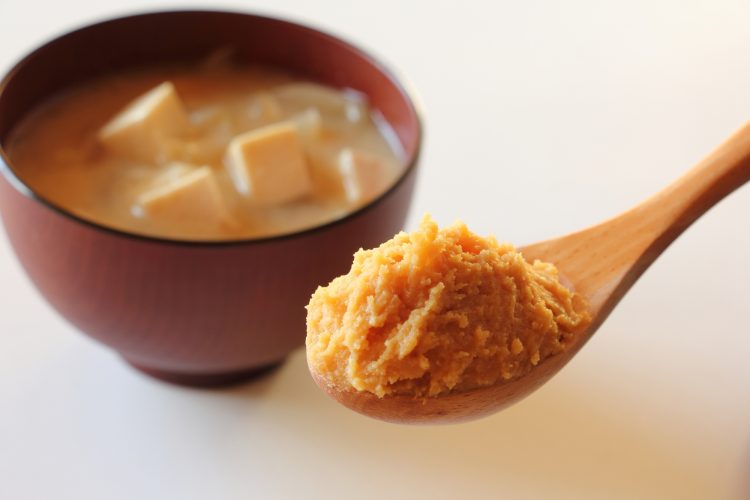
Fermented foods like natto, tsukemono (Japanese pickles), yogurt, miso, and soy sauce can be relied on to keep the gut in good working order. The lactic acid bacteria found in fermented foods are effective in increasing beneficial bacteria in the gut while keeping harmful bacteria in check.
Also essential to improving the intestinal environment is fiber. Besides vegetables and mushrooms, also be sure to get plenty of tubers, pulses, and fruits.
To boost your immune system, it’s important to obtain the nutrients you need from your everyday meals. Finally, here are two meal prep recipes that you should definitely give a try!

A marinated dish made with bell peppers, which contain more vitamin C than any other vegetable, and squash, which is rich in vitamins A and E.
Vitamins A, C, and E are known collectively as ACE, and ace vitamins is exactly what they are. Obtaining all three together boosts the percentage of active oxygen eliminated from the body.
This dish also abounds in phytochemicals, since the ingredients with which it’s made—bell peppers and squash—are so brilliant in color.
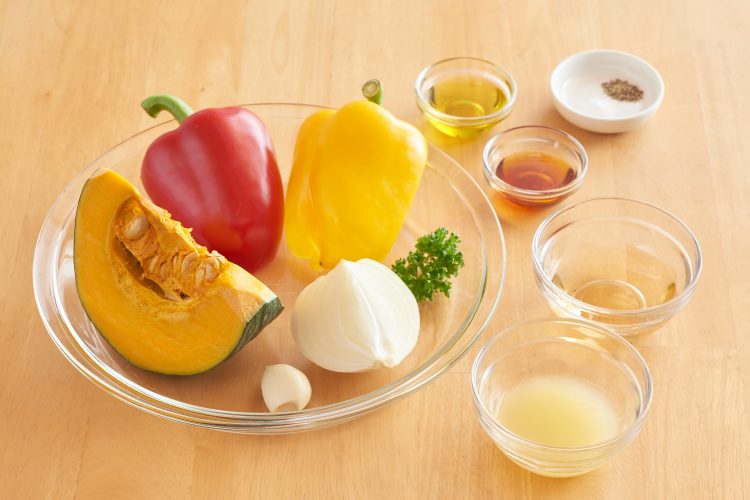

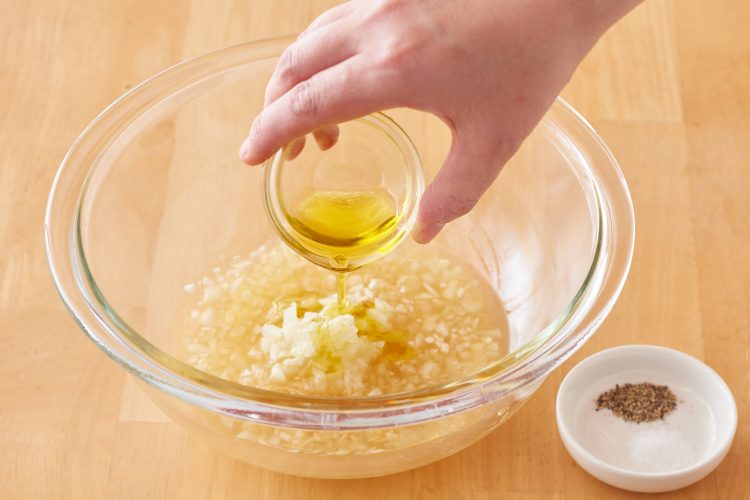
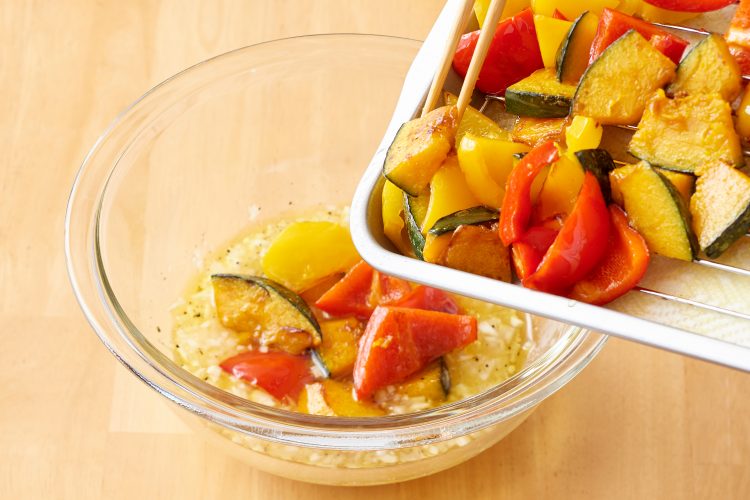
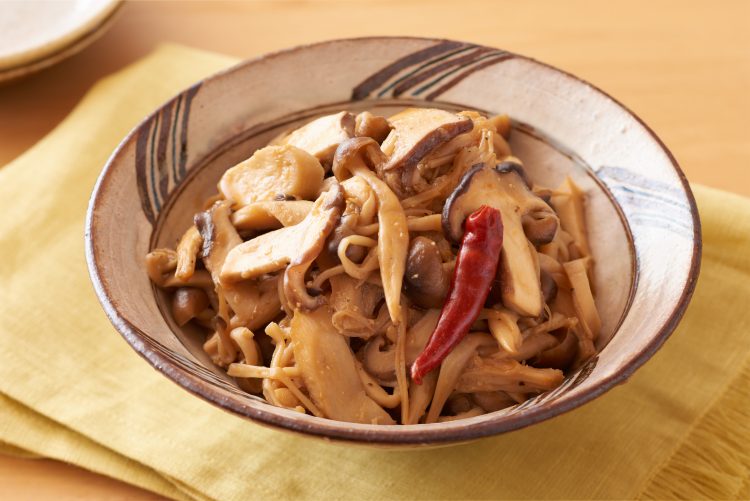
A dish made with generous amounts of mushrooms, which contain immunity-boosting beta-glucan, plus fermented condiments like miso and soy sauce. It keeps well, which is handy, because you can make extra to store for later. Keep it in the fridge and eat it all in 4-5 days.
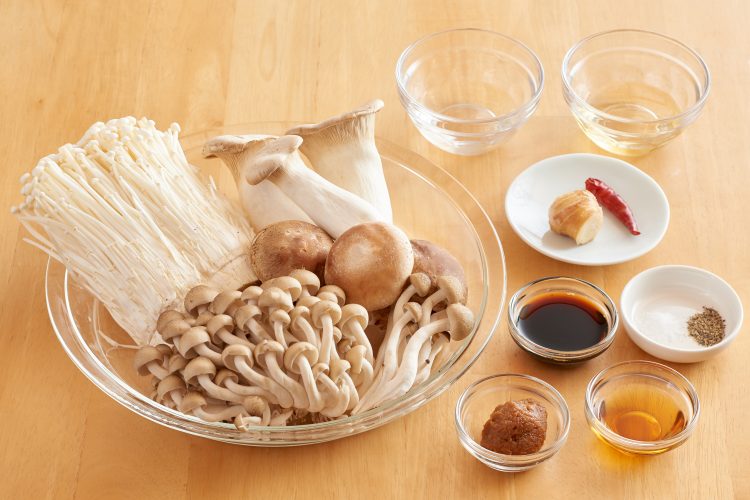

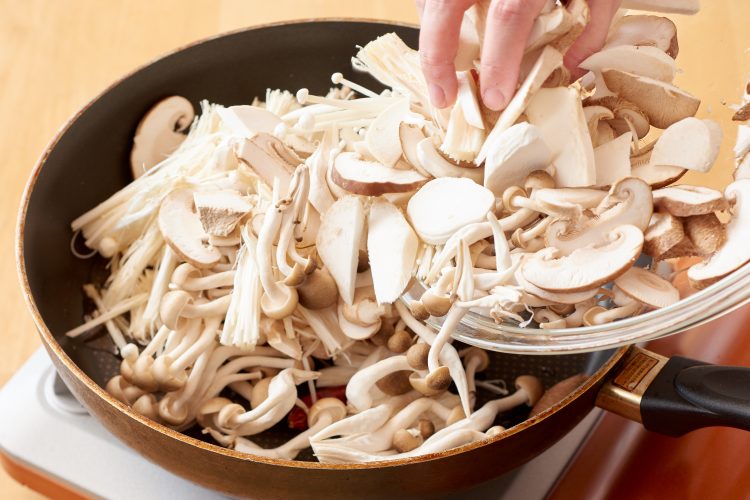
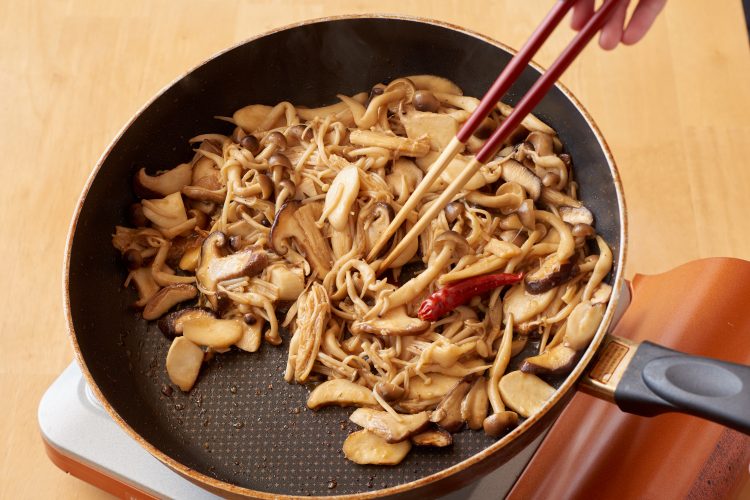
References
1. Sources on the role of ACE vitamins in eliminating active oxygen
Norioka Takako. Eiyō seibun no jiten [Dictionary of nutrients] (revised edition).
Igarashi Osamu, Yonekawa Yukako, and Fujihara Yoko. Seitanai ni okeru bitamin E to C no sōgo sayō: ODS ratto de no kentō [Synergistic action of vitamin E and vitamin C in vivo: A study using ODS rats]. Vitamin, vol. 64, no. 7, pp. 395-396. The Vitamin Society of Japan.

An all-round food specialist, Kanako is a food coordinator as well as a registered dietitian, a licensed cook, and a qualified international traditional Chinese medicine chef. Not only is she a skilled food stylist who knows how to make food appear appetizing and visually appealing. She also compiles calorie-conscious diet recipes, comes up with her own innovative recipe ideas, and oversees those of others.